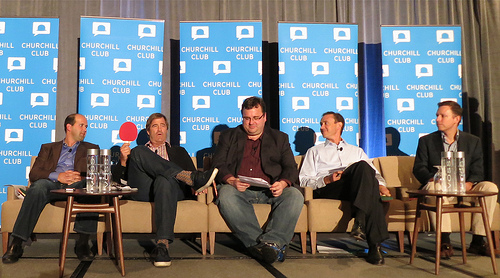Check out these precision turned parts photos:
Churchill Club Best Ten Tech Trends 2012

Image by jurvetson
This is the most tough speaking occasion, by far, that I take on, and somehow I keep coming back.
Just spank me with that red paddle!
5 panelists are asked to come up with two tech trends that we feel are worthy of the prime 10 title, and that are, as they instruct:
1) Not apparent right now
2) You believe there will be explosive growth in about five years’ time
When you do this for a lot of years, it gets tougher and harder. For several years now, I have done this, and have to come up with new ones every single year. If it’s too clear, it really is boring. If it’s as well radical, it may not be relevant over the next five years. And it had to be crucial and new… worthy of a top ten tech trend.
So, here are the 10 trends…
What do you consider? Which do you agree most with? Disagree most with? Consider are too apparent?
Trend 1. Radical Globalization of Social Commerce (Kevin Efrusy)
In prior cycles, international segments consisted of 30-40 percent of income, begun three-5 years right after the US effort. Going forward, "ROW" can dominate domestic, and players who wait to address it are vulnerable to competitors who go global first.
Trend 2. Zero Marginal Cost Education (Bing Gordon)
In the 1970s, ATMs have been considered “dehumanizing” and bank tellers were the gold regular. But tellers got worse, although ATMs improved. Public education seems to be repeating this pattern, and the oligopolists of “big education” do not appear to have read Innovator’s Dilemma.
Trend three. Massive Sensors and Information (Reid Hoffman)
Sensors cost trends to zero there are sensors everywhere and element of almost everything. In mixture, we’ll create several information collections that power applications and innovations to boost our lives. Genetics, disease, and symptom information for automate tri-corders, precision diagnosis, and customized medicine. Collaborative filtering of all types of discovery– from music to information to specialist training.
Trend 4. All Cars Go Electric (Steve Jurvetson)
Ultimately all motor vehicles will transition to an electric drive train, affording greater efficiency, convenience, and a multitude of new design and style options. Inside 5 years, this inevitability will grow to be clear.
Trend 5. A Shift Toward Technocracy: Doing A lot more with Less (Peter Thiel)
Democrats want government to do far more with far more. Republicans say government should do much less with significantly less. Technologies might permit it to do much more with significantly less.
Trend six. It’s Just the Venture Cycle (Kevin Efrusy)
The fortunes of Silicon Valley seldom mirror the rest of the planet since the ebb and flow of creative disruption follows a distinct pattern and 14-16 year cycle than the macro economy. We appear to be correct on schedule…
Trend 7. Gamification of Everything (Bing Gordon)
As Lance Armstrong wrote, “Every second counts.” As digital natives increasingly multi-activity, and as the social web creates geometric growth in posts, the battle is for engagement. For the expanding population of game-players, reportedly 70% of Americans, games are essential systems for generating meaning, and can enhance behavior by 25 to 100%.
Trend 8. The New Hardware: Bits to Atoms (Reid Hoffman)
Open Supply patterns now applied to hardware. Collective design bases with fast modifications. Flexible manufacturing generating limited run and distinctive devices. 3D printing indicates revolution in custom and unique goods. In the end, revolutions in biological and medical products and solutions.
Trend 9. Moore’s Law Accelerates Beyond Silicon (Steve Jurvetson)
When we take into account Moore’s Law in the abstract, the dropping expense of computation is not tapering off. Rather it will accelerate additional nonetheless as we appear beyond the silicon era.
Trend ten. The Beginnings of Bioinformatics Intelligent Design and style More than Random Drug Discovery (Peter Thiel)
Much more strong computer systems will turn biology into an information science.